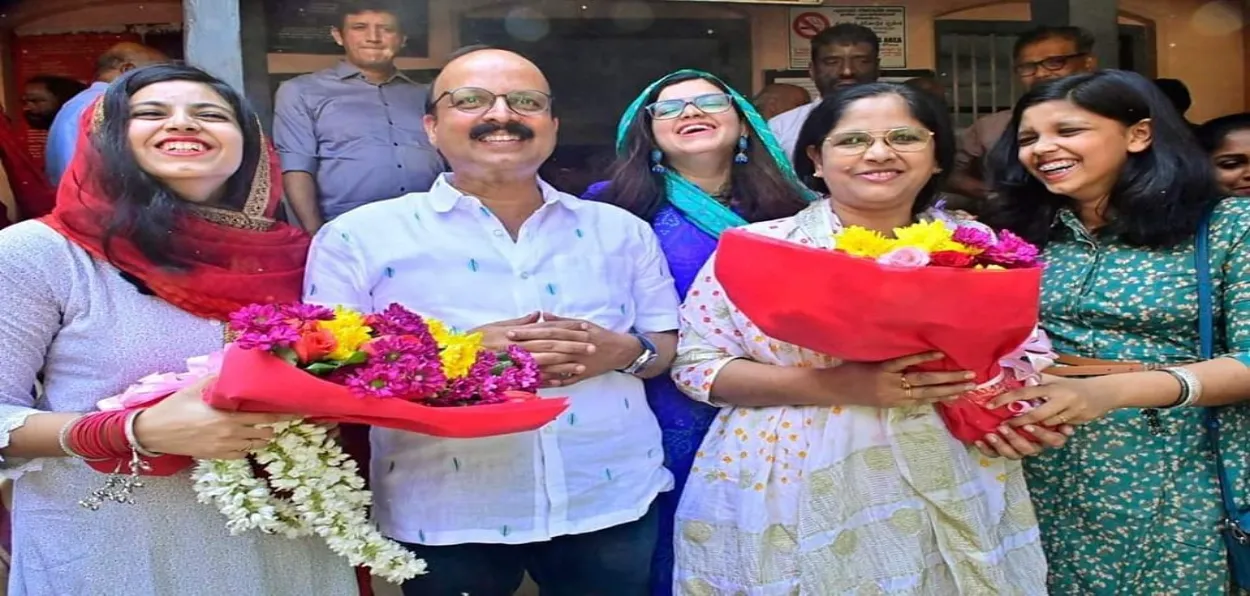
Aasha Khosa/New Delhi
Marriages are solemnized amidst chanting of mantra or taking vows on a Nikahnama in the presence of a Maulvi, but for advocate C Shukkur and his wife Dr Sheena Shukkur, it also had to be done in front of a Marriage Registrar and under the law of the land.
On March 8 (International Women’s Day), specially chosen for its symbolism, C Shukkur, a Kasargod-based advocate, and Dr. Sheena Skukkur signed the documents of their marriage under the Special Marriage Act, 1954, in the office of the sub-registrar.
The Act entitles two adult Indians to get married without taking into account their religion or caste.
They organized their 're-marriage' 29 years after their nikah, as per Islamic traditions, so that their three grown-up daughters could inherit their property as guaranteed by the Constitution of India.
On March 8, while some religious hardliners were fuming over the couple’s remarriage, the Shukkurs were surrounded by family and friends. “We cut a wedding cake brought by my students from the law department. I also served Biryani to them at home as they came to greet us,” said Dr. Sheena Shukkur, head of the Law Faculty of Kannur University, Kerala.
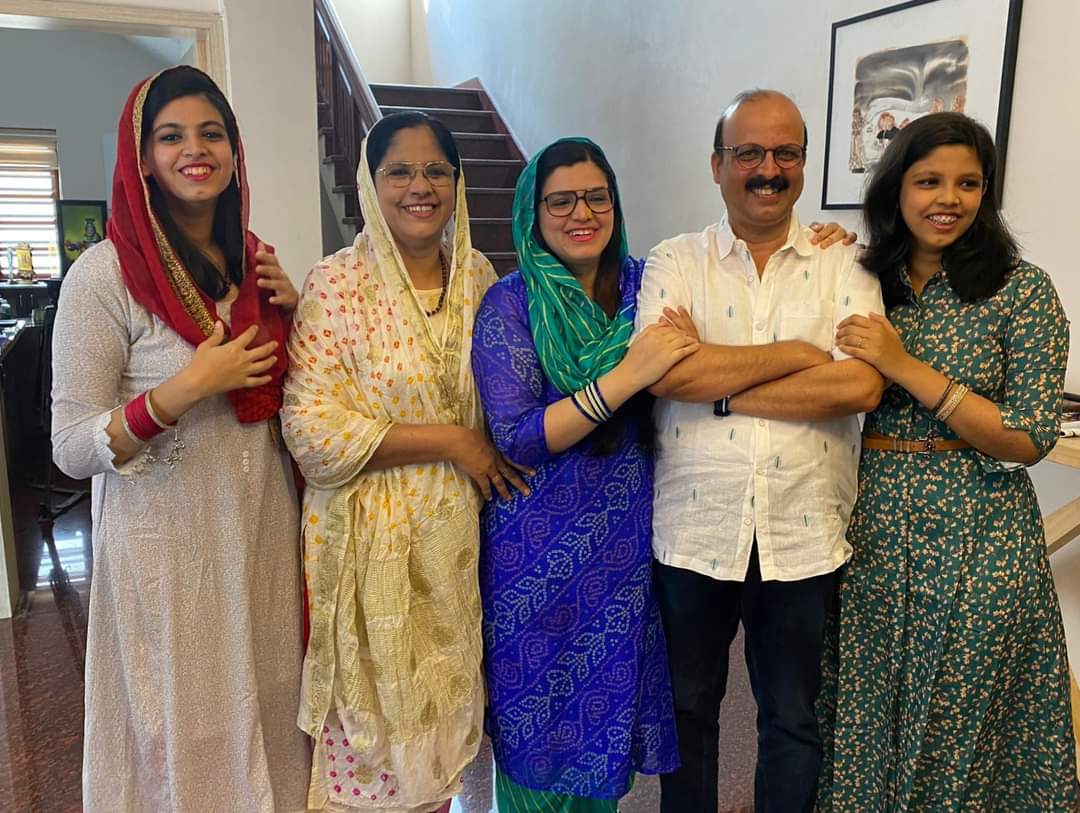 Jebin, Sheena Shukkur, Jasmine, C Shukkur and Jezah (L-R) make a perfect picture of a happy family
Jebin, Sheena Shukkur, Jasmine, C Shukkur and Jezah (L-R) make a perfect picture of a happy familyThe reason behind Shukkur and his wife taking this bold step was their desire to secure the rights of their three daughters – Jasmine, Jebin, and Jezah- to inherit the properties they would leave behind.
Shukkur says, “I am not a brave man; I did all this for giving a dignified life to my daughters and thereby all daughters (Muslim women) who would not get their due under the provisions of the personal law.”
He says his act of ensuring the rights of his daughter under the Constitution of India as against the Muslim personal law – that entitles one-third of his property to daughters and the rest to his siblings in case of his death - is a tribute to all the Muslim women who have suffered under the provisions of the personal law. He explains that this is applicable to Muslims who follow the Sunni inheritance law.
Shukkur, who hails from a typical “Malabar mappilla” family in Kanhangard, a town in Mallapuram, says he was raised by parents who were devout Muslims. “I am a first-generation professional; my father was an agriculturist and a merchant. He owned landed property. However, at our home, father ensured that not only my mother had full rights but also sought her opinion on everything.”
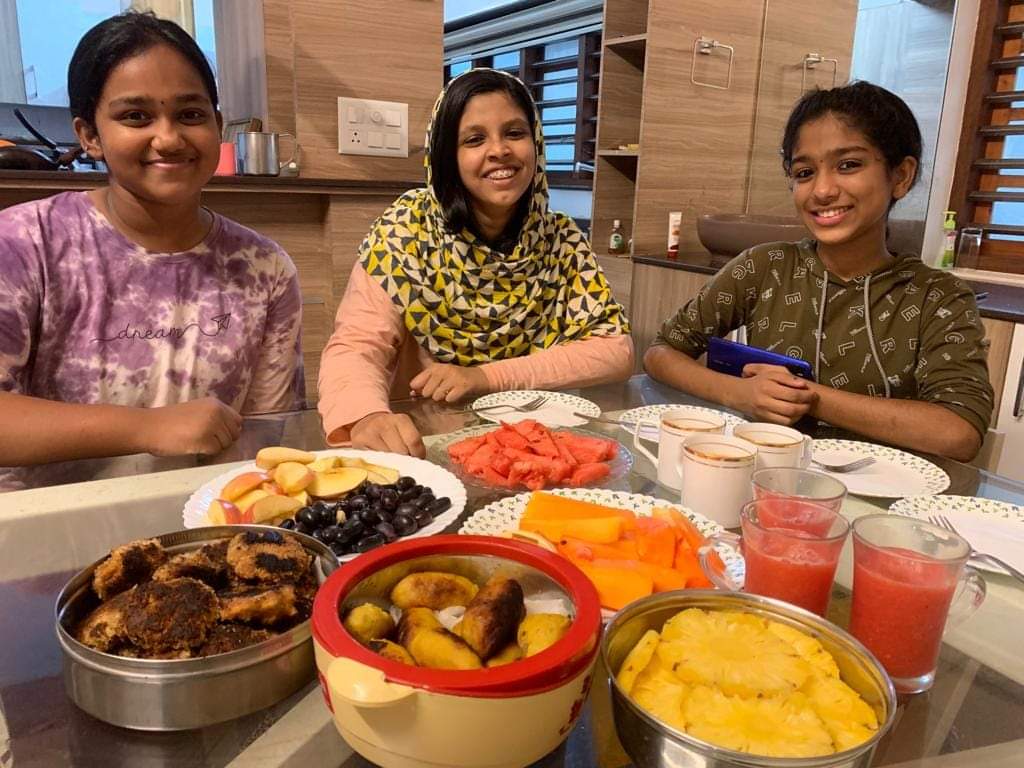 The three Shukkur Sisters opening their fast during Ramazan
The three Shukkur Sisters opening their fast during Ramazan
Shukkur attended Madrasa for religious education along with a regular school.
“After much thinking, when my wife and I decided to register our marriage under SMA, I wanted to take my father’s opinion.”
He was so unsure of his 82-year-old father’s reaction that he asked his daughter Jezah to speak with her Uppupa (grandfather), who lives with his second wife whom he married after the death of Shukkur’s mother.
After knowing his mind, Shukkur also spoke to his father. “He was very happy and gave me a green signal.”
Once again, Shukkar says he was happy to see Shakira, the wife of his younger brother Munir fly from Dubai to Kerala to attend their wedding.
Munir, a computer professional, and Shakira have four sons. Shakira was one of the witnesses to the wedding and was also interviewed by the BBC about the event.
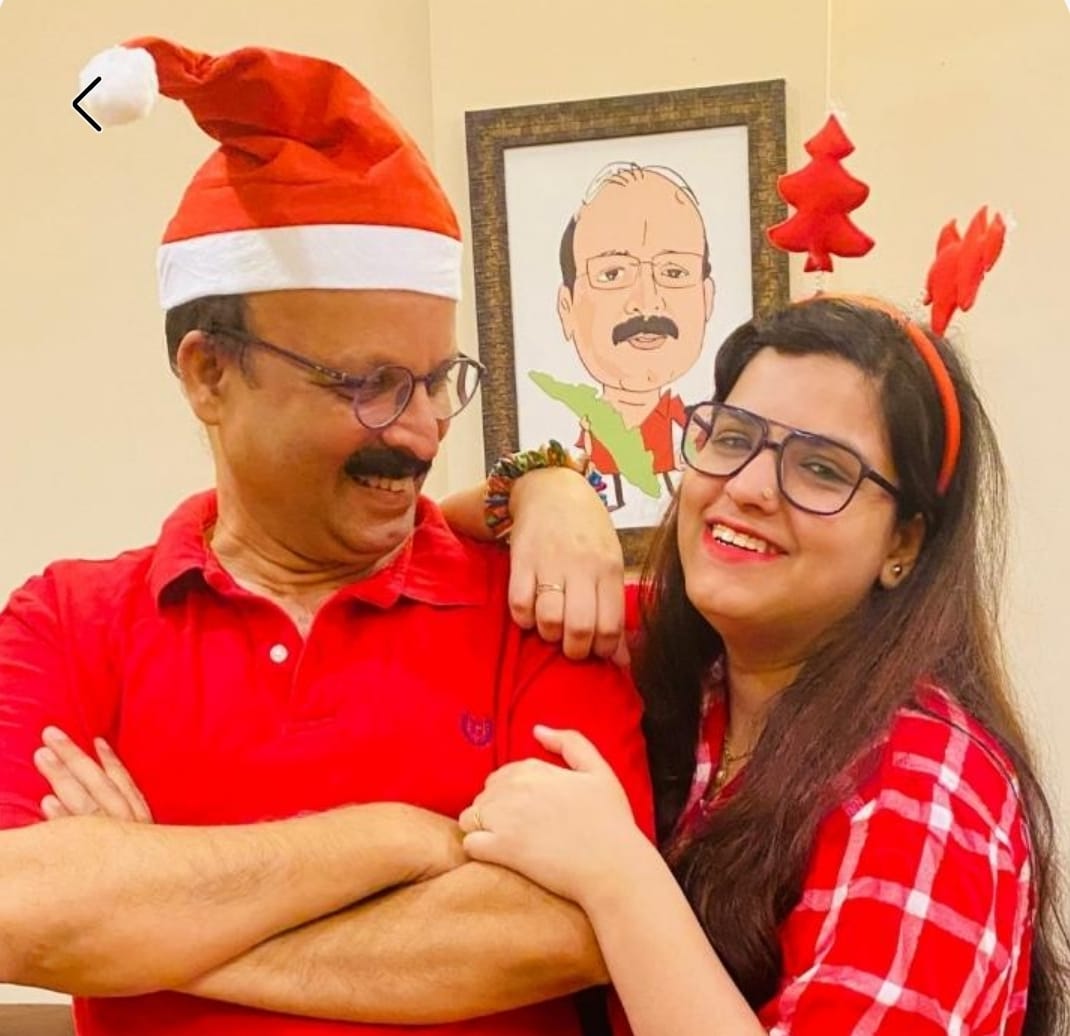 C Shukkur with Jasmine celebrating Christmas
C Shukkur with Jasmine celebrating Christmas
The Shukkurs' daughters – Jasmine, who works with the Supreme Court in Delhi, Jebin, studying for her master’s degree in Chennai, and Jezah, a student of the tenth standard - are bright women.
Sheena and Shukkur met while studying law at the Law College, Kozhikode (University of Calicut), Kerala. Sheena was selected as Fulbright Vanderbilt Fellow and did her LLM from, Vanderbilt University Law School, Nashville, Tennessee, USA, and later did her PhD in India.
“We are pious Muslims. My wife Sheena has deep knowledge of our culture; she is an exponent of Mappilla Pattu (folk song of the Muslim community of North Kerala); her talk on Mappilla Ramayana, a tradition of Kerala Muslims, is on YouTube and you can see how many people have seen it.”
Shukkur says after enrolling as an advocate he came across the reality of the Muslim community especially what women faced in marital life and this changed his “typical Malabar Mappilla" mindset.
He says polygamy which is permitted in Islam had played havoc with the lives of many women. "The ignored wife runs from pillar to post for getting maintenance, and educating her children; a widow who are entitled to one-eighth share in her husband’s property would be eventually forced to leave her dwelling and fend for herself.”
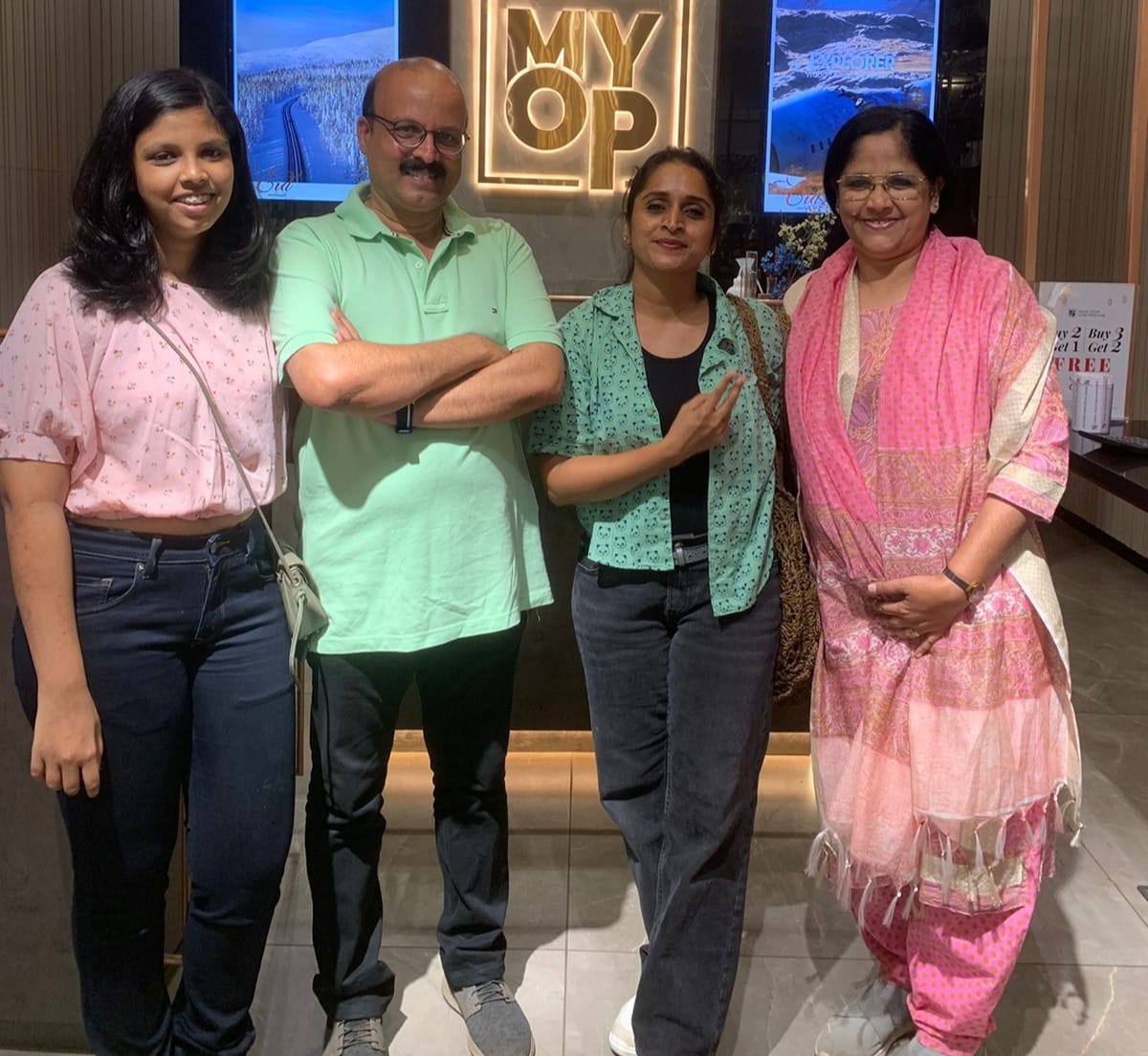 Sheena and Shukkur and their daughter Jezah outside a Movie hall
Sheena and Shukkur and their daughter Jezah outside a Movie hall
“They were victims and at the receiving end in all cases. I have seen how Muslim women suffer.” However, he says, polygamy was prevalent till 15 years ago and is not so common there days.
“I was forced to change,” he declares.
He said he went for 'remarriage' to ensure his “daughter, who are blessings of Allah, get the same rights as all citizens of India – a man, woman, Hindu, Christian or even an atheist – are entitled to under the constitution of India.”
Shukkur also became a popular actor in Kerala for playing the role of a lawyer "Shakkur Vakeel" in the Malayalam movie ‘Nna Thaan Case Kodu.' His youngest daughter Jezah told Awaz-the Voice that he would soon be seen in another Malayalam movie the title of which is yet to be revealed.
Shukkur says he had brought up his daughters with full rights and believes they must get their share of opportunities.”They have a say in everything we do as a family. We raised our daughters in a manner that they have full right to speak about everything be it what must be cooked for lunch or dinner, buying a vehicle for family, property, or say a shirt for me to wear.”
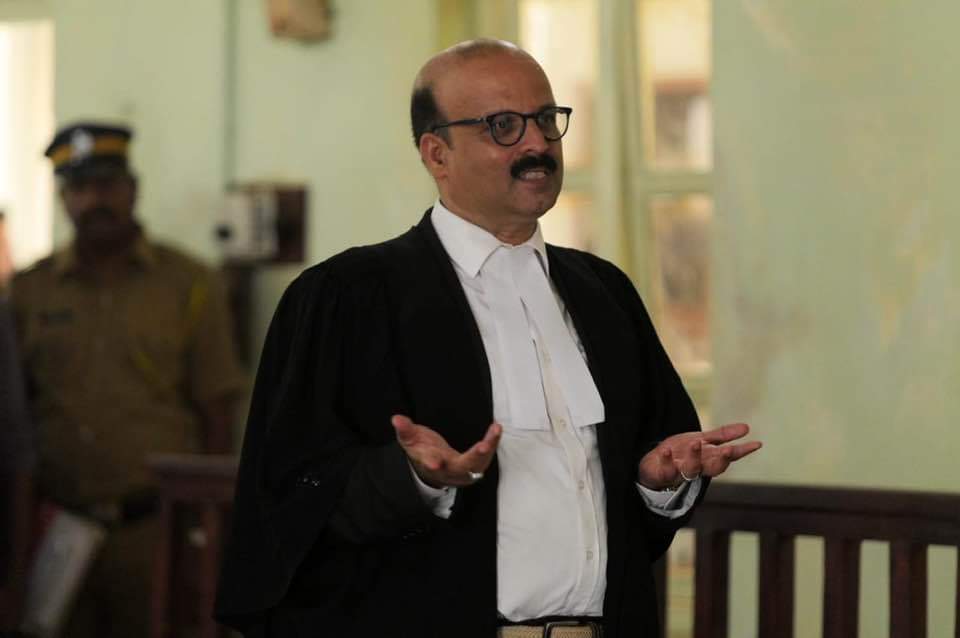 C Shukkur playing himself in a Malayalam movie
C Shukkur playing himself in a Malayalam movie
“My mother enjoyed all rights in our family; my father gave more attention to her and her opinion and consulted her on everything; I am following him,” he said. The father even distributed his wife's assets equally among his five children - three sons and two daughters. As per the personnel law, the girls would get only one part and the son would get two parts.
Shukkur was undeterred. “The next morning, I was the first person to go to a mosque for Namaz and nobody dared to say anything to me.”
Someone even gave a call to Muslims to not use my services as an advocate. “Muslims community did not hear these voices; they ignored them.”
To their surprise, the Shukkurs were visited by friends who told them that they had also solemnized similar weddings quietly for the same reason. However, they kept it secret, fearing a backlash from hardliners in the community.
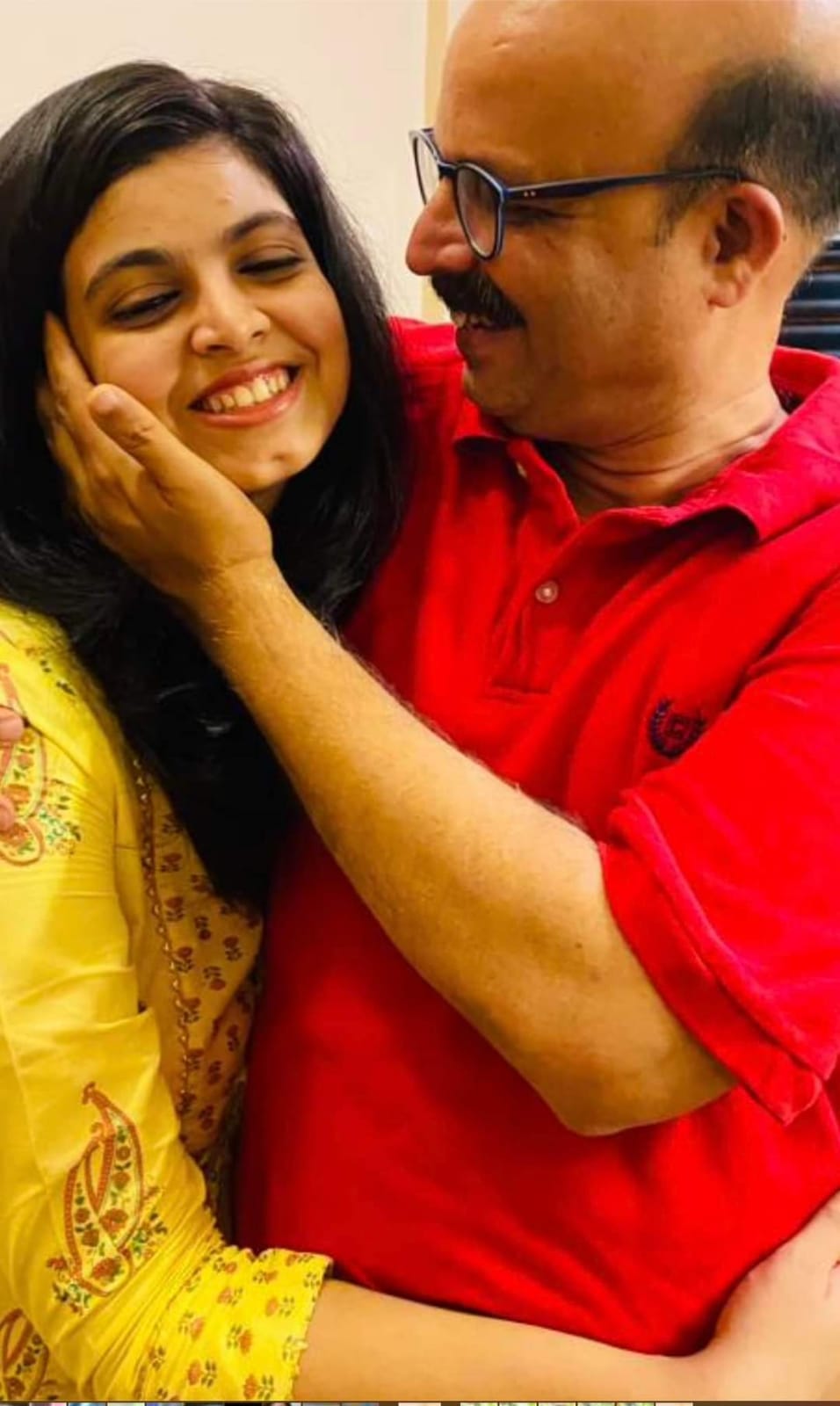 C Shukkur with Jezah
C Shukkur with Jezah
“After we signed the papers of our marriage under the SMA, many people turned up to claim they too had done a similar this so that their daughters get equal share in their properties,” Dr Sheena told Awaz-the Voice on the phone from Kerala.
Dr. Sheena says she is besieged by Muslim women who want her to guide them on how to secure the rights of their daughters. Shukkur says there is a lot of awareness about women’s rights in Kerala after the famous case of Mary Roy, (Mother of author Arundhati Roy) winning a case for Christian women’s right to inherit property that led to a change in Christian personal law.
He says the society has changed.Today, Muslim women are vocal and are not ready to put up with injustices in their marital life.
Shukkur says after his remarriage, several persons came to his office to seek assistance in getting inheritance rights to their daughters, sisters, or other women.
He said due to his experience and exposure to such injustices, he had proposed to the Kerala government to change the rules for the allotment of houses to poor people under Project Life Mission.
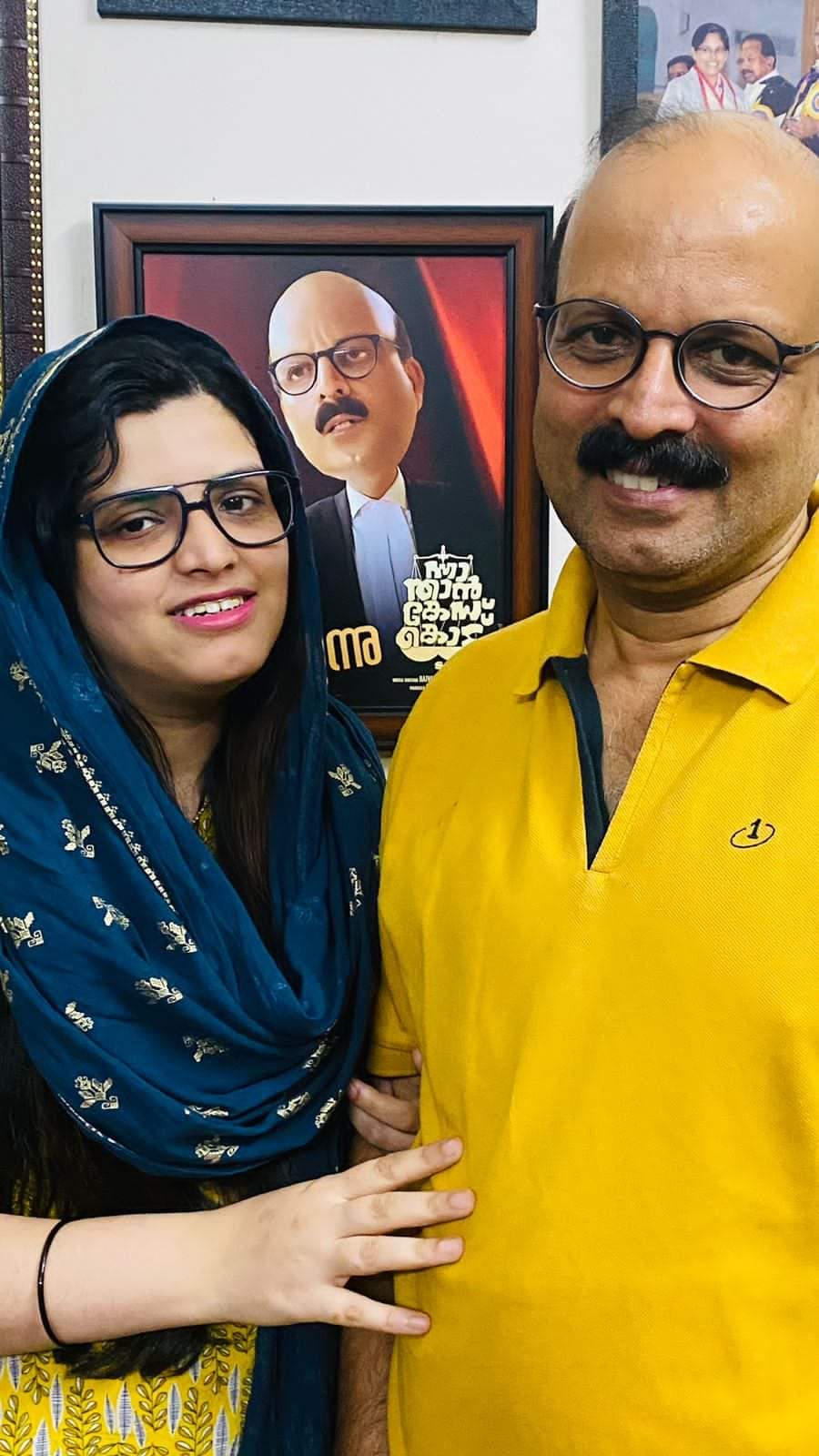 C Shukkur with his first born Jasmine
C Shukkur with his first born Jasmine
“I approached M B Rajesh, local bodies’ minister of Kerala and he promised me that henceforth the rules will be changed in favour of the lady of the house.”
He said that political parties in Kerala were increasingly speaking for women's rights without mentioning religion.
Shukkur however doesn’t support the Common Civil Code as a way out of the personal laws discrimination against women, for “India is too diverse and culturally rich a land to be governed by one law.”
ALSO READ: "Burqa, early marriage, disregard for formal education behind ever-rising dropout among Muslims"
Shukkur’s mantra for Indians is: get your rights under the Constitution of India while you are free to follow your religion, rituals, customs, and traditions.
(All pictures are from the Facebook page of C Shukkur and have been used with his permission)
